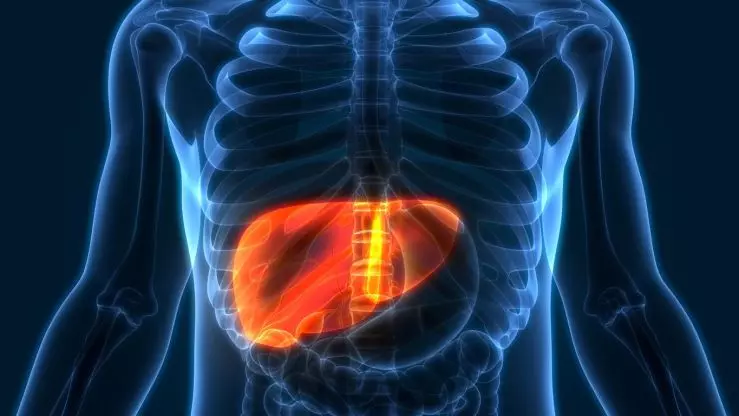
As a group of committed and caring primary care physicians our goal is to bring awareness on all health related topics. Since October is Liver Cancer Awareness Month, we felt like this was a great opportunity to dive a bit deeper into this condition.
Liver cancer, or hepatocellular carcinoma, is just like other forms of cancer that are caused by rapid and abnormal cell division. The exact causes of cancer can vary, but they often involve genetic mutations or changes in the DNA of cells. These mutations can be caused by factors such as exposure to carcinogens (substances that can cause cancer), genetic predisposition (inherited mutations), or a combination of both. We will get more into the causes and risk factors below.
The Liver and Liver Cancer Explained
Think of your liver as a hardworking factory inside your body. It has several jobs. Its main job is to process and clean the blood that comes from your digestive system before sending it to the rest of your body. It also helps store important nutrients like vitamins and minerals, build important enzymes and proteins like albumin, make clotting factors, and break down chemicals (such as medications and alcohol).
Like any other factory, things can go wrong from time to time. Think of that beloved episode of I Love Lucy when Lucy and Ethel are working in the chocolate factory. The chocolates begin to come down the conveyor belt faster than Lucy can handle. While this episode is good for a laugh, this is somewhat what it’s like when things go wrong in the liver.
Like too many chocolates, Liver cancer happens when some of the liver cells start growing uncontrollably and form a lump or tumor. These cancerous cells can harm the healthy liver cells and stop the liver from doing its important tasks properly.

Liver Cancer Risk Factors
Alcohol Consumption
Excessive and chronic alcohol consumption can harm the liver by causing cells to die over and over leading to inflammation and scarring and an increased risk of liver cancer. Limiting alcohol intake is crucial for maintaining liver health and reducing cancer risk. Alcohol is a risk factor for many other types of cancer as well, so it is best to always limit your consumption or abstain all together.
Chronic Hepatitis Infections
Hepatitis B or C viruses are transmitted through bodily fluids (such as blood, semen, and saliva). They may increase the risk of developing liver cancer. These viruses can lead to ongoing liver inflammation and damage, which increase the risk of cancer development over time.
Cirrhosis
Cirrhosis is a late stage of scarring (fibrosis) of the liver caused by many forms of liver diseases and conditions, such as hepatitis and chronic alcoholism. It is a significant risk factor for liver cancer. Long-term liver damage and scarring can increase the likelihood of cancer development.
Non-Alcoholic Fatty Liver Disease (NAFLD)
NAFLD is a condition characterized by excess fat accumulation in the liver, unrelated to alcohol consumption. It is most often seen in individuals who are obese or who eat an unhealthy diet. In its advanced stages, it can lead to liver cancer.
Obesity
Obesity is associated with an increased risk of liver cancer. Maintaining a healthy weight through a balanced diet and regular exercise is essential for reducing this risk.
Diabetes
Individuals with diabetes are at a higher risk of developing liver cancer. Proper diabetes management is crucial in mitigating this risk.
Family History and Genetics
A family history of liver cancer or certain genetic factors can contribute to an elevated risk. Understanding your family history can aid in early detection and prevention strategies.
Exposure to Certain Toxins
Aflatoxins, naturally occurring toxins produced by certain molds, can contaminate food, especially grains and nuts, in some regions. Long-term exposure to aflatoxins is associated with an increased risk of liver cancer.
Smoking
Smoking is linked to various types of cancer, including liver cancer. Quitting smoking reduces your risk and improves overall health.
Gender and Age
Men are more likely to develop liver cancer than women. Additionally, the risk of liver cancer increases with age.
The Importance of Regular Screenings
Like almost all diseases the earlier liver cancer is detected the better the odds are for a positive outcome. Coming in for your regular visits and screenings are therefore essential. Additionally, by understanding the factors that may increase your risk of developing this type of cancer you can begin to make healthy lifestyle changes to decrease your risk.
Together, we can combat liver cancer and work towards a healthier future for all. Schedule your regular visit today!